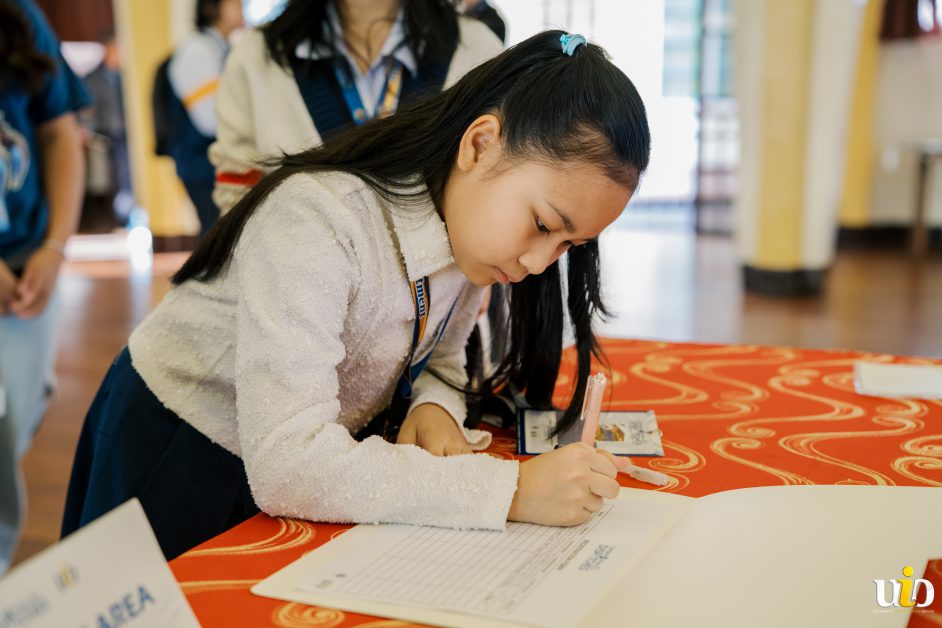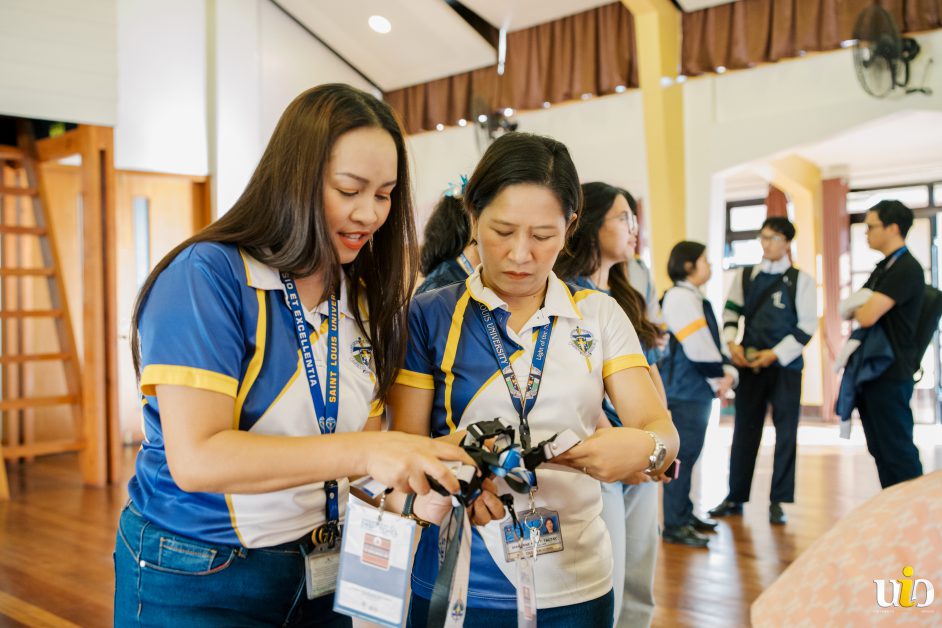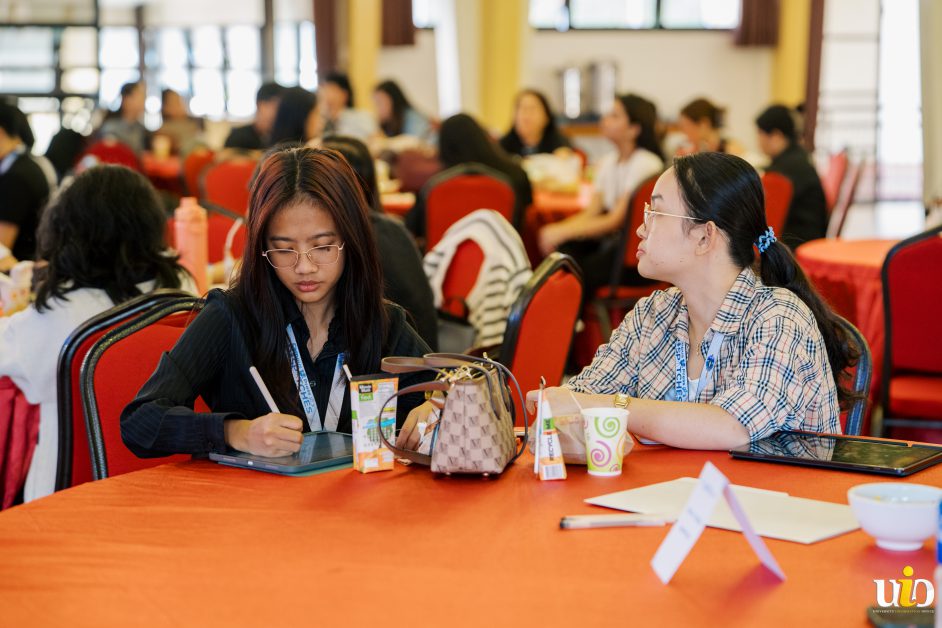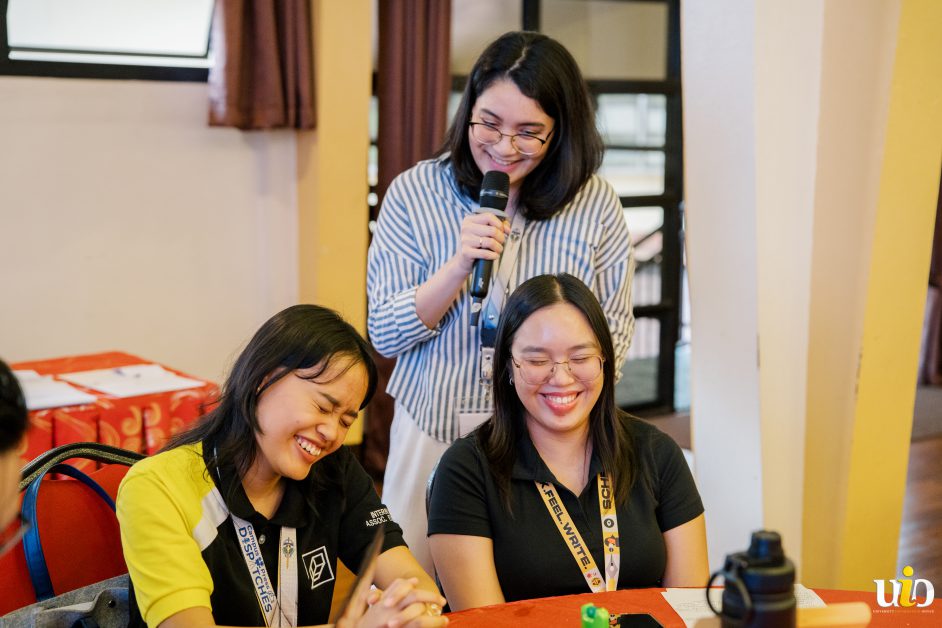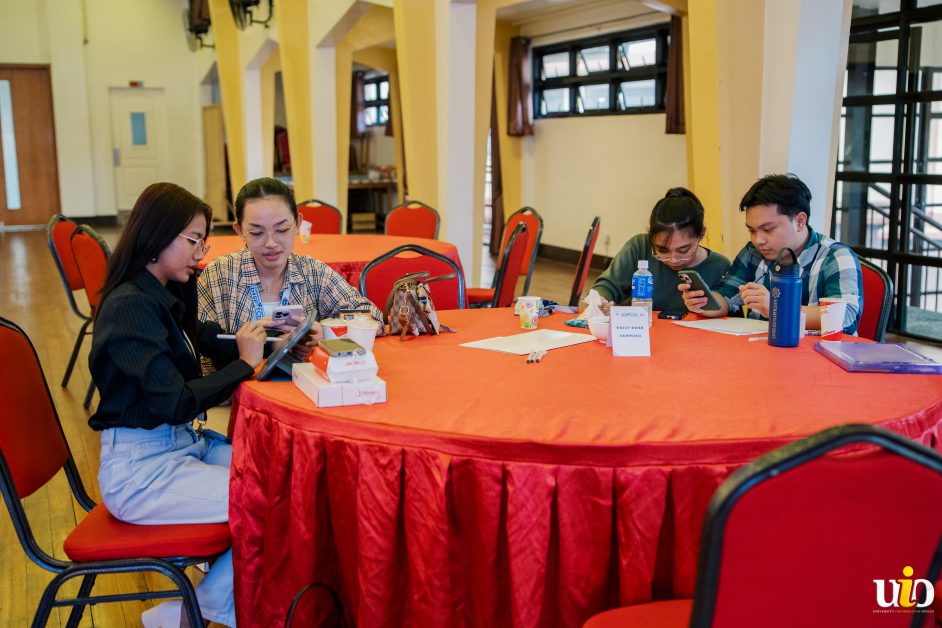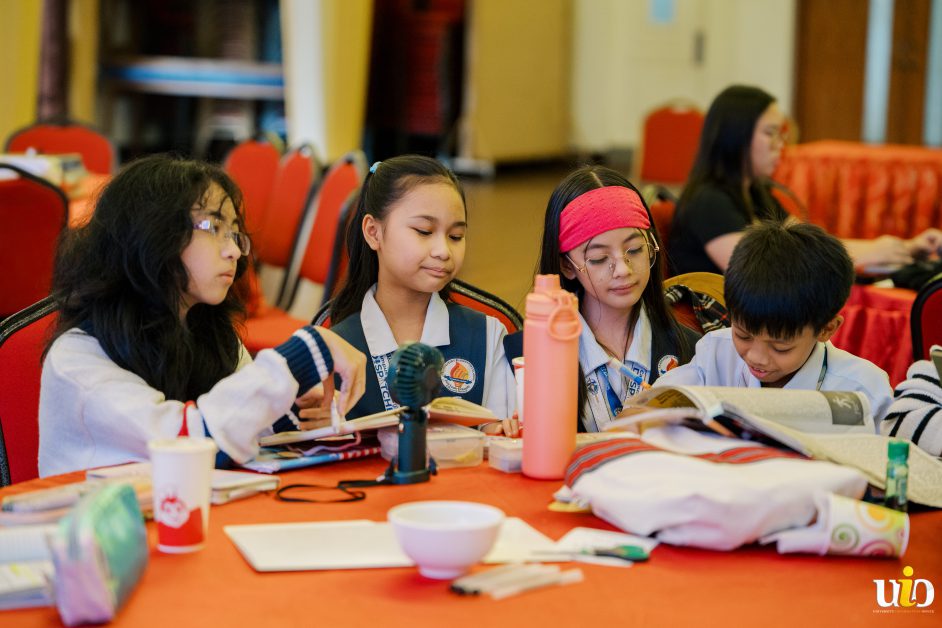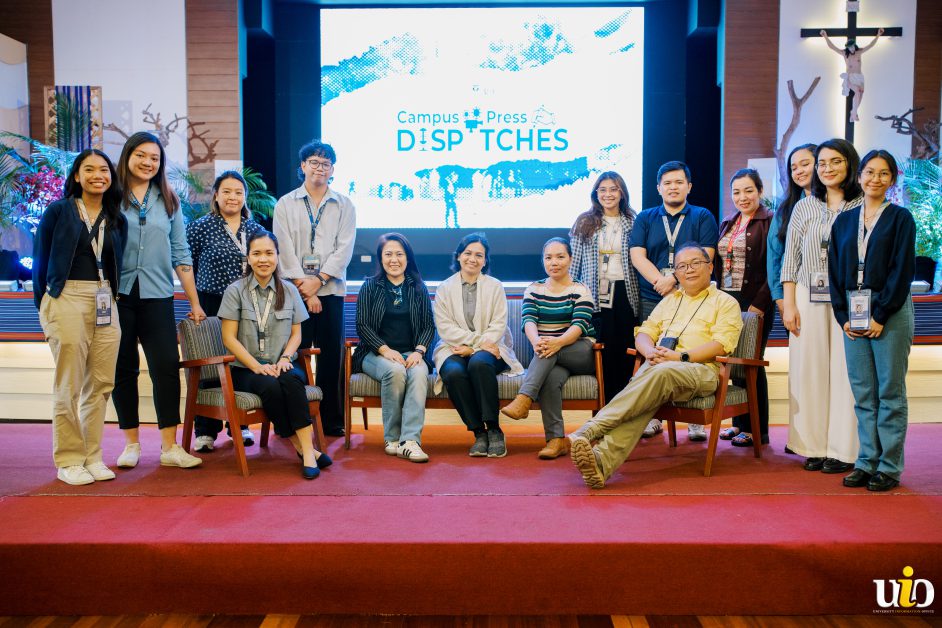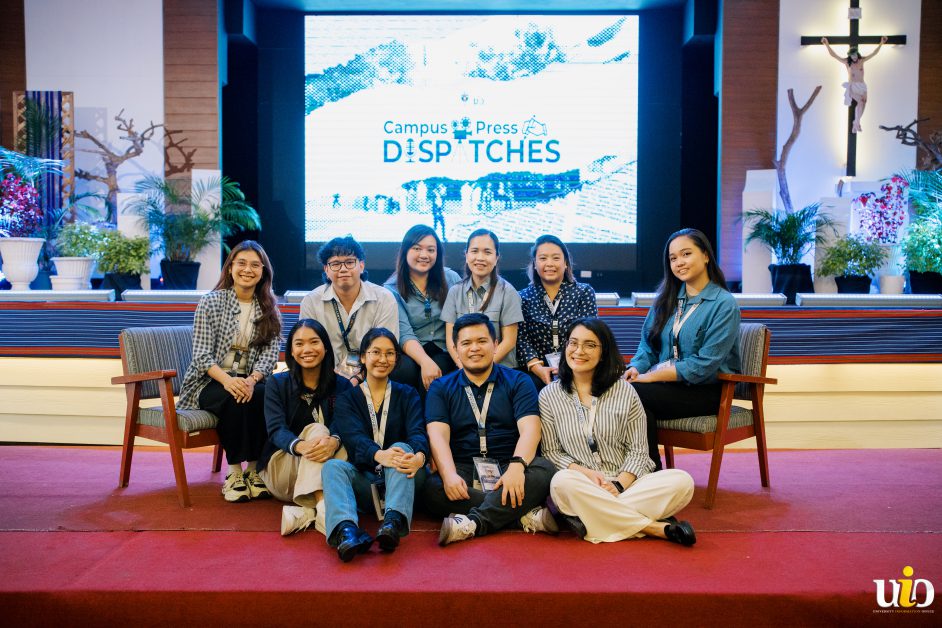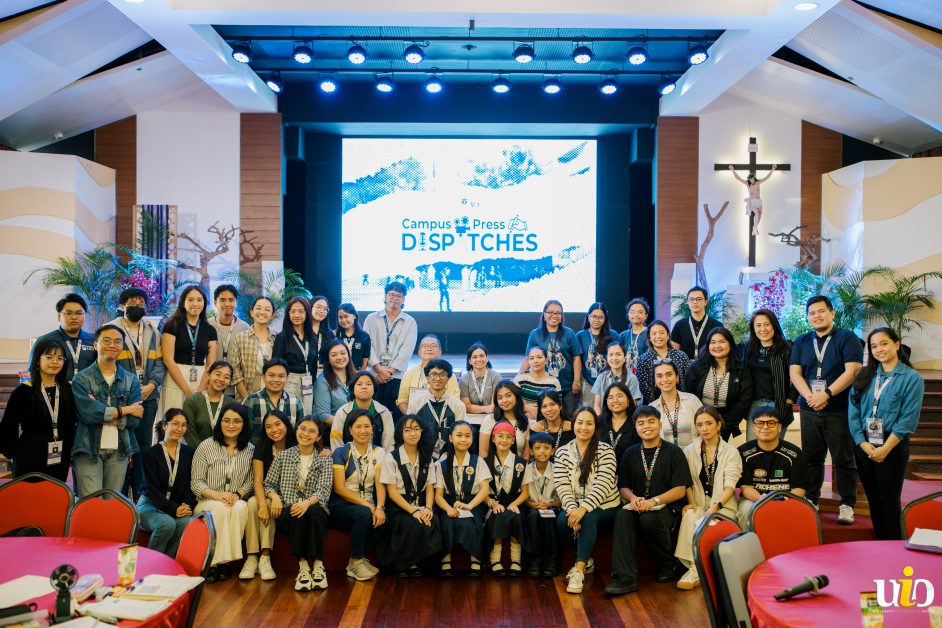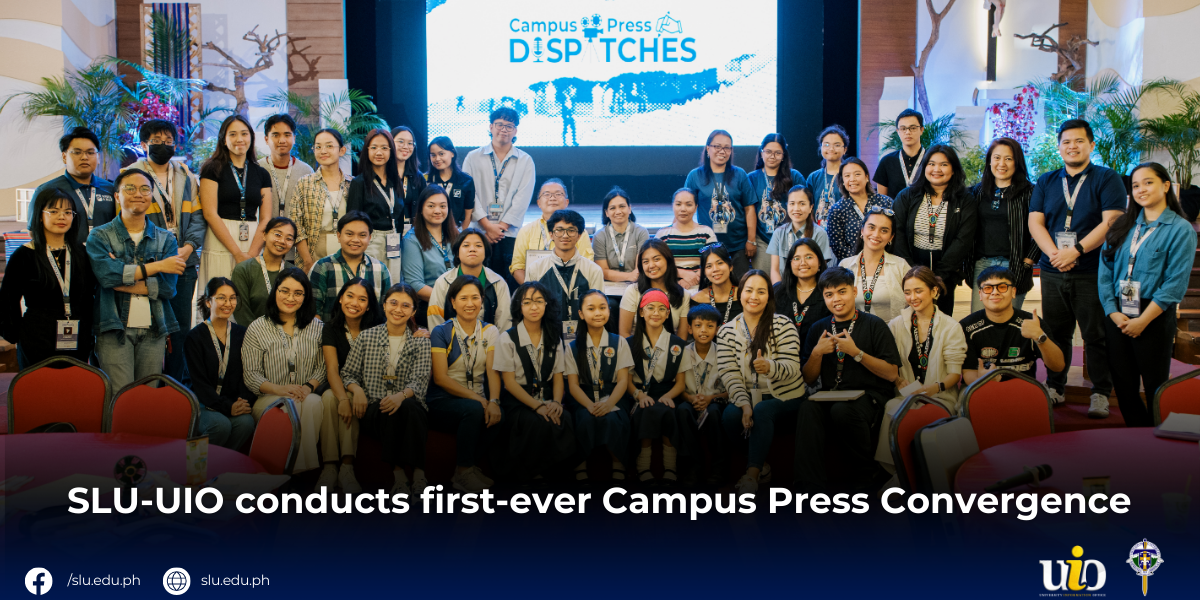Saint Louis University (SLU) conducted its first-ever school publications convergence, titled “Campus Press Dispatches: A Convergence of Louisian Student Publications,” on 26 November 2024 at the Fr. Francis Gevers Hall, Diego Silang Building, Saint Louis University Main Campus.
Spearheaded by the Office of the University President (OUP) through the University Information Office (UIO), the convergence was an initiative that aimed at broadening the perspective of campus journalists on emerging themes in media and the changing horizons of journalism, particularly in the ever-changing digital landscape. The convergence gathered campus journalists and school paper advisers as selected representatives from 10 student publications of SLU, namely:
Basic Education School (BEdS):
- Alab – SLU Laboratory Elementary School – Filipino
- The Young Louisian Courier – SLU Laboratory Elementary School – English
- Tanglaw Hilaga – SLU Laboratory High School – Junior High
- The Louisian – SLU Laboratory High School – Senior High
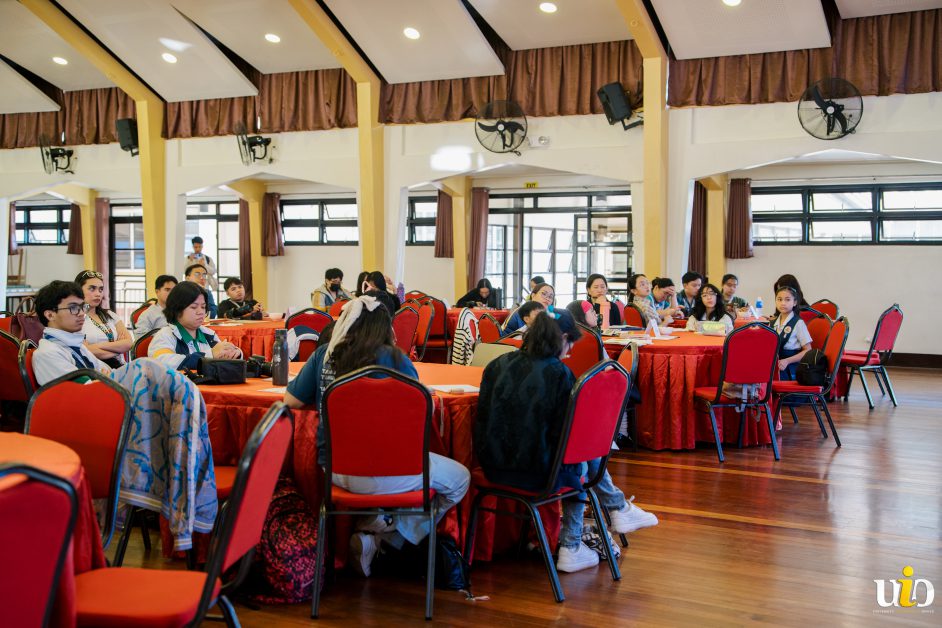
SLU Schools Publications:
- Daily Dose – School of Nursing, Allied Health, and Biological Sciences (SONAHBS)
- Sampuso Publication – The Official Publication of the SLU Saint Aloysius Gonzaga Parish and the Congregation of the Immaculate Heart of Mary Campus Mission Volunteers (CICM – CMV)
- SCHEMA – School of Accountancy, Management, Computing and Information Studies (SAMCIS)
- Stellaris – School of Teacher Education and Liberal Arts (STELA)
- The Buttress – School of Engineering and Architecture (SEA)
- White & Blue – The Official Student Publication of SLU
Honoring Campus Press: A Beacon of Truth, A Force for Good, and A Catalyst for Change
Expressing gratitude to the attendees, guest speakers, and University Information Office in his opening remarks, Executive Assistant to the University President, Joselito C. Gutierrez, PhD, highlighted the profound impact of campus journalists who are tasked as communicators with stories that spread truth and inspiration within and outside the Louisian community.
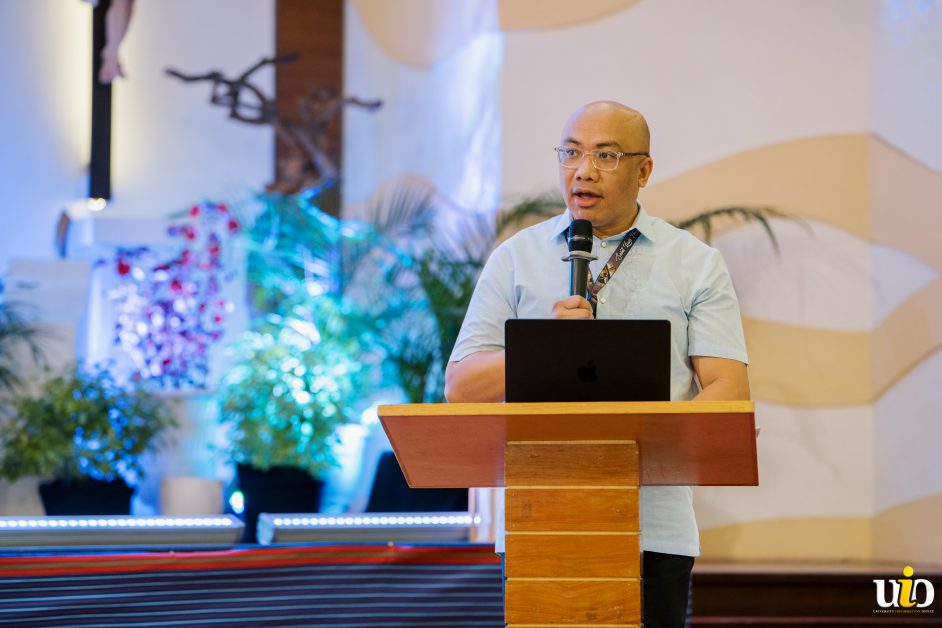
“Today, we celebrate the unique and indispensable role that campus journalists play in shaping our understanding of the world around us. This event serves as a crucial platform for engaging in a dialogue, exchanging ideas, and exploring the dynamic landscape of journalism and media in our ever-evolving society,” Dr. Gutierrez stated, emphasizing on the significance of the conference.
Furthermore, he commended the presence of experienced Filipino journalists who shared their insights and provided tools that empower students to navigate the complexities of modern journalism and deliver news that is accurate and ethical, rooted in responsible storytelling.
Community Journalism: The Role of Campus Press in Community Advocacy
Sharing her journey as a previous campus journalist and news correspondent for several outfits as the national broadsheet Philippine Daily Inquirer and community newspaper Sunday Punch, Atty. Johanne Margarette Macob, University Information Officer and the Director for Legal Affairs of SLU, conveyed that her passion for journalism helped her lay the foundations of who she is today – a path that hopes to resonate with every Louisian journalist with their own advocacies. “With these in mind and knowing that education is a continuous process of learning, and that competence precedes any difference,” the UIO thought of a program that would further the collaboration between the Office and the student publications towards impactful reporting and community building.
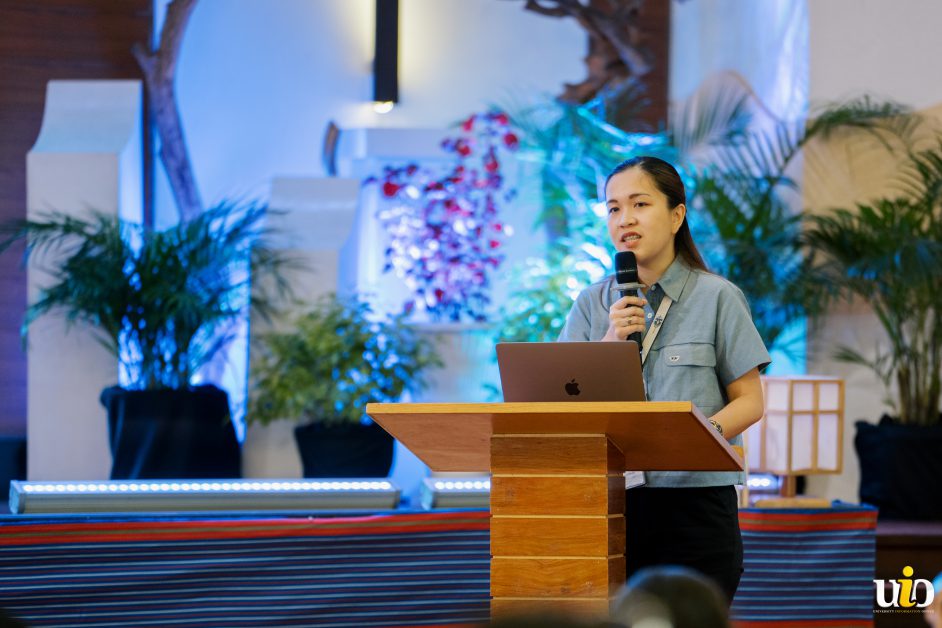
Revealing the origins of the press dispatch, Atty. Macob stated that the program was sparked by the first coverage collaboration between UIO and SLU’s student publications in the last CICM Friendship meet held in February 2023, “…The collaboration ensured a comprehensive reporting on different sports, academic, and cultural events. We wish to collaborate more with you, especially in the upcoming events of the university, the lantern parade, and the foundation day celebration.”
Shortly after, the plan was set into motion– as the UIO was fresh from celebrating its first anniversary as a unit in the University– with two primary objectives: to help Louisian student publications in their craft and hone ethical reporting, specifically in news writing and in various types of journalism (e.g. digital journalism, multimedia journalism, photojournalism, and more); and to further strengthen UIO’s collaboration with the SLU student publications, empowering them towards impactful reporting for community building.
Concluding her remarks, Atty. Macob hopes to continue and expand the program in the future, with the UIO remaining open to ideas on how to continuously collaborate with the school publications in future events within and beyond the campus.
Session 1, Digital Journalism: “Empowering Student Voices: Media Literacy in the Digital Age” by Ms. Dabet Panelo
For the topic on digital journalism, the first session speaker was Ms. Dabet Panelo, the Chief Content Aggregator and Training Officer of ABS CBN Bayan Mo Ipatrol Mo (BMPM), on “Empowering Student Voices: Media Literacy in the Digital Age.”
She briefly discussed the basics of traditional and digital media and how the landscape has shifted to the emergence of social media, making fact-checking more challenging with the prevalence of information disorder, particularly misinformation and disinformation.
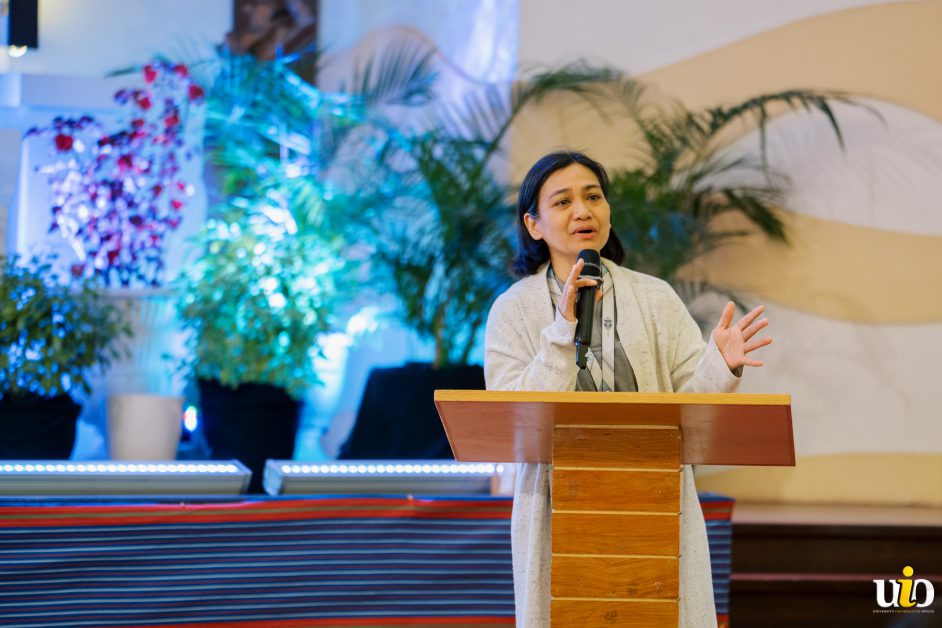
“We have come in that age where there is Information Disorder. We are facing the same problems: Misinformation and Disinformation. News should always be verified, news should be accurate. As a journalist, you should always have to take that extra step just to verify that information.” she firmly stated.
Ms. Panelo also discussed the process of fact-checking online, stressing that accuracy is more important than speed and that multi-sourcing and following a triangulation process are better in fact-checking and debunking fake news online. Additionally, she reminds journalists that adapting is the way to go instead of reverting back to sole traditional methods while the digital landscape expands and shifts. “Information is power, and informed citizens can make informed decisions,” she remarked.
Session 2, Writing: “Local Voices, Global Impact: Writing in the Age of Digital Disruption” by Ms. Kimberlie Quitasol
The second session “Local Voices, Global Impact: Writing in the Age of Digital Disruption,” was conducted by Ms. Kimberlie Quitasol, News Correspondent of the Philippine Daily Inquirer. She began with the basic principles of what news should be: factual, accurate, and verified, with a stance on journalism being biased, but only to what is true and for the common good. “News can never be fake. Journalism is biased toward the truth, justice, and the good of all. Biased kami, pero objective kami,” quipped Ms. Quitasol.
Further, she briefly discussed the distinct difference between journalists and content creators, shedding light on the importance of ensuring that the news being delivered is as accurate and reliable as possible. “There is accountability. By putting your byline in that story, by putting the names of editors in that editorial box, it is already a statement saying that we are responsible and accountable for whatever story that comes out in our name,” she said.
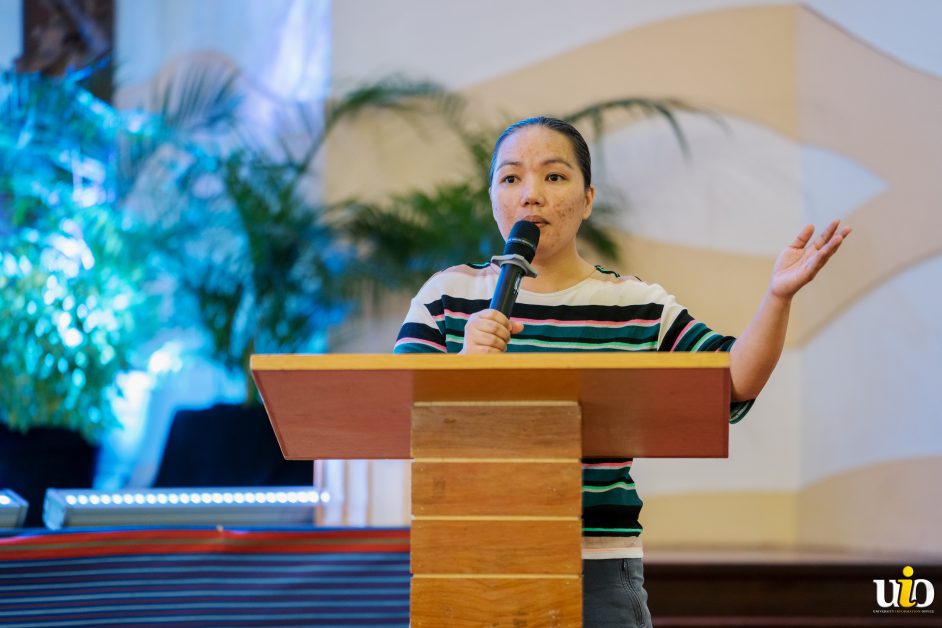
With respect to subtopics on Press Freedom, Ethical Journalism, Freedom from Censorship, Protection of Sources, Access to Information, Independence, and Safety of Journalists, Ms. Quitasol urged the fostering of transparency, accountability, and democracy in gathering data for news writing. She also affirmed the utilization of tools and platforms in navigating the digital world rather than fighting against it.
Session 3, Photojournalism: “Visual Storytelling: Best Practices for Modern Photojournalists” by Sir JJ Landingin
For the third and final session, Mr. JJ Landingin, a Correspondent and Photojournalist of Manila Bulletin, talked about “Visual Storytelling: Best Practices for Modern Photojournalists,” where he shared thorough tips and pointers in handling a camera and the hidden craft of knowing where and when to shoot a photo.
Mr. Landingin described the shift from the traditional use of cameras to cameras in smartphones, addressing that the skill of photography should not only be based on the equipment you have. “The best equipment you have is the camera you have,” he said.
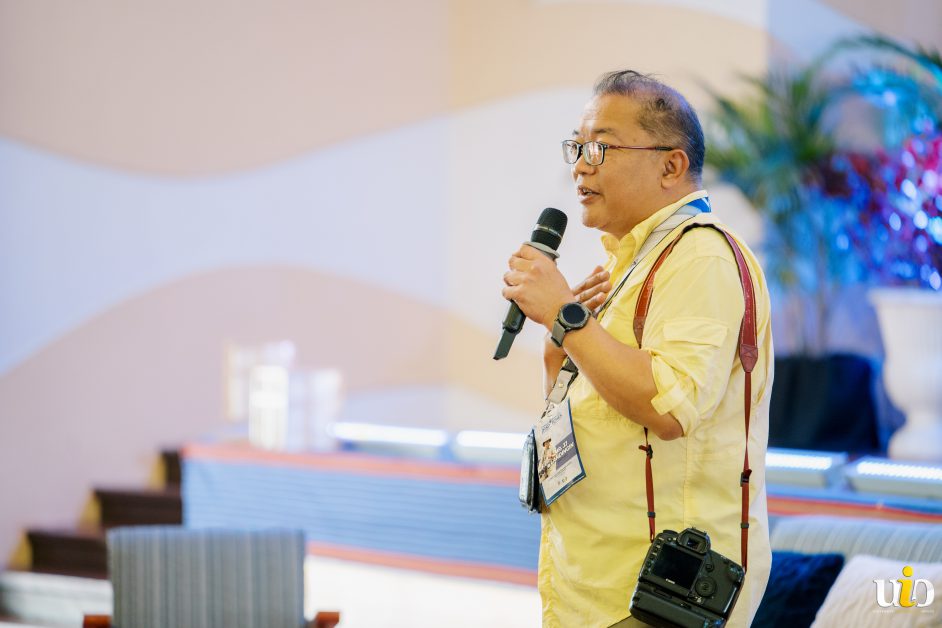
He talked about how he does the post-processing of photos when editing, including the four primary things one should toggle with in editing media: contrast, copy, sharpen, and brightness. This is to ensure that the edited photo remains as close to the raw photo as much as possible, retaining its originality and authenticity.
Additionally, Mr. Landingin provided key advice on dealing with public individuals, the rule of thirds in balancing elements or subjects, and said, “Huwag kayo magtitipid (the camera shots). Kasi kung magtitipid kayo, sayang yung image na mapapalampas niyo.”
The morning session ended with “Journalists Unplugged: A Fireside Conversation,” a Q&A session between the guest speakers and participants, followed by the awarding of certificates for the resource persons for sharing their knowledge and expertise on engaging with communication journalism in a digital setting for a better world, specifically with subtopics on writing, digital journalism, and photojournalism.
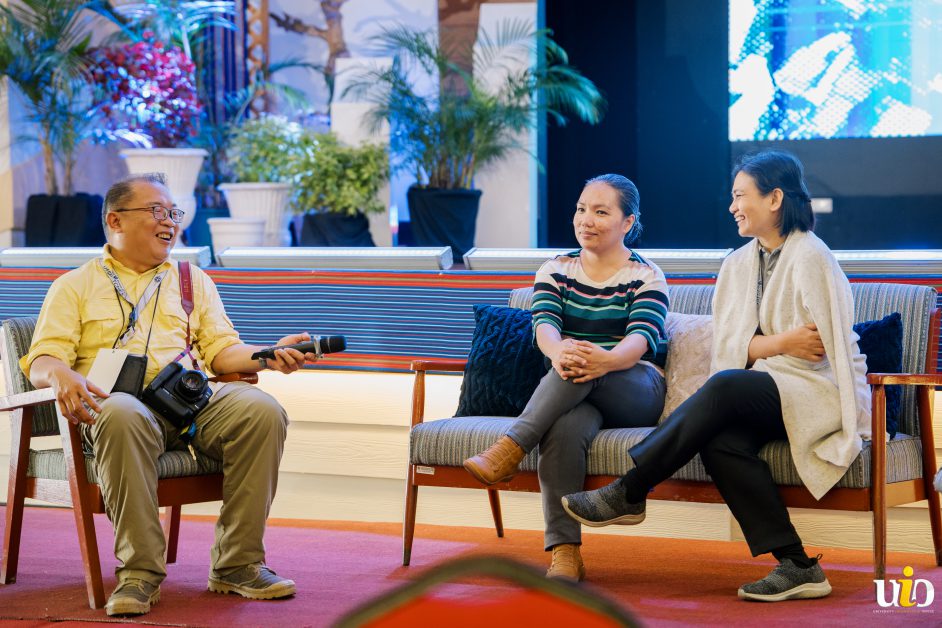
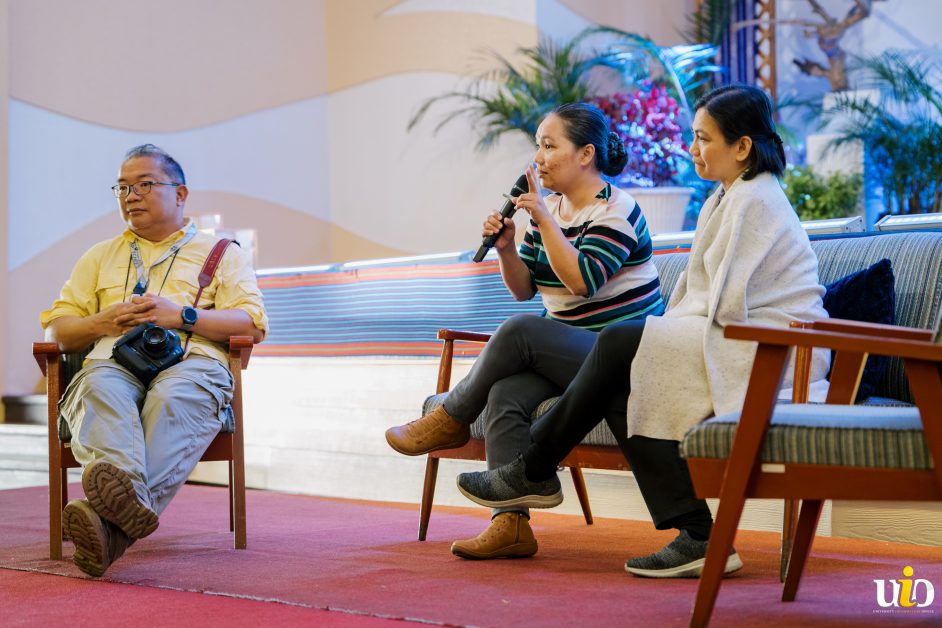
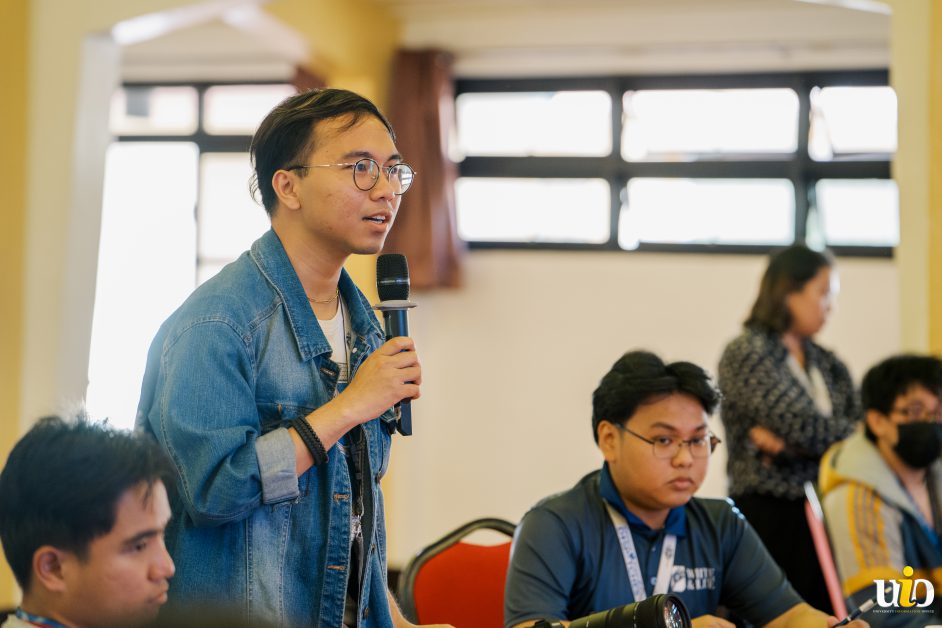
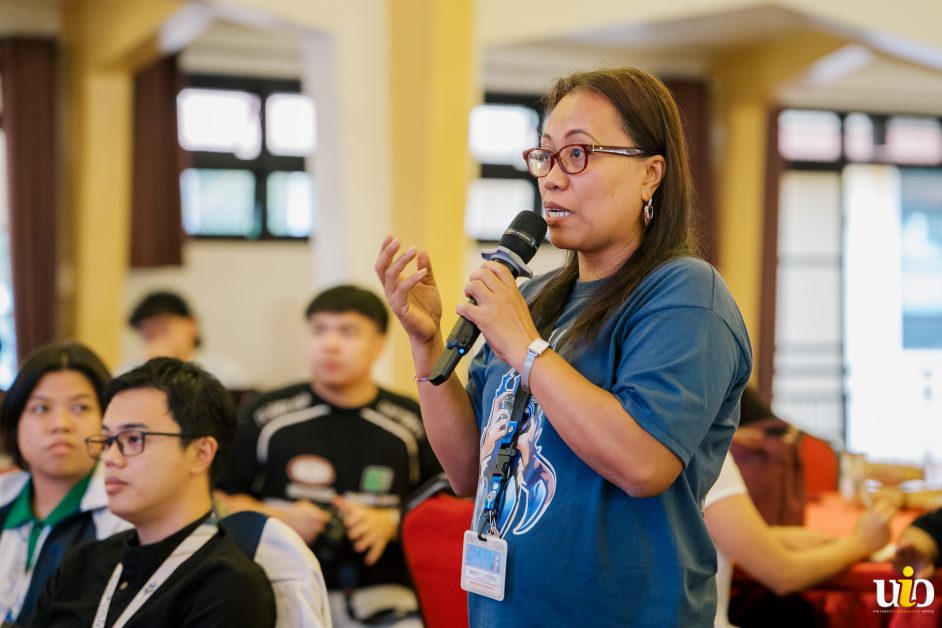
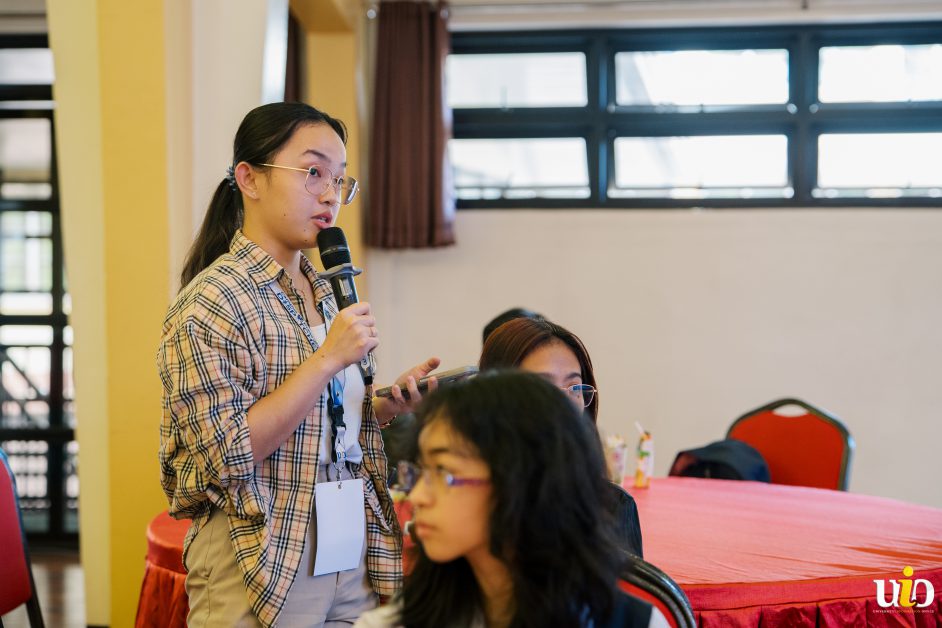
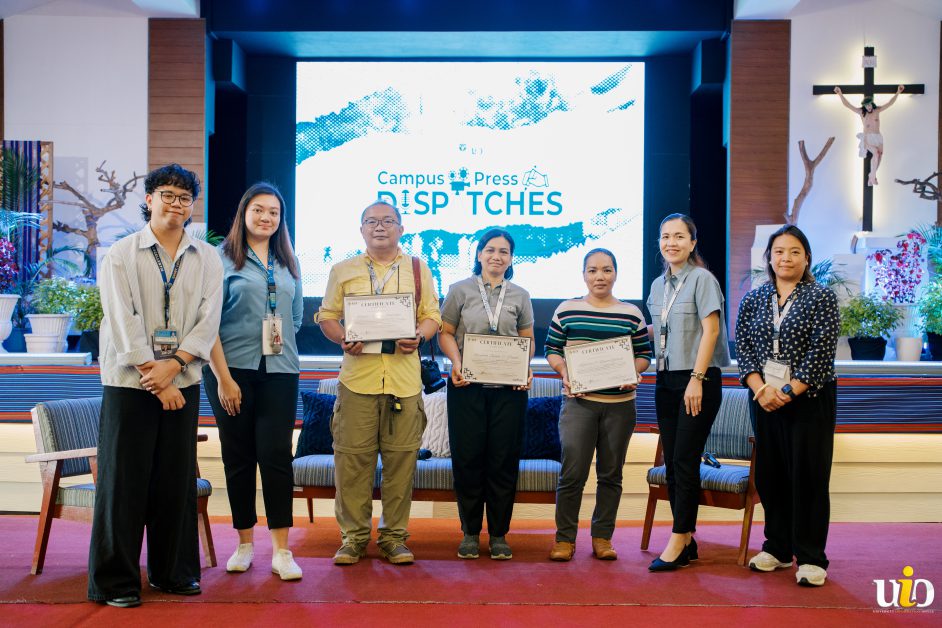
Campus Press Dispatches: A Workshop on Covering Louisian Subcultures and Communities
After debriefing with a lunch break and a quick icebreaker, the afternoon session was set into motion with the guidance of Mrs. Kaye Leah Sitchon, SLU-UIO writer and communications professor from the School of Teacher Education and Liberal Arts (STELA), providing a brief overview of the workshop’s key topic, “Covering Louisian Subcultures and Communities.”
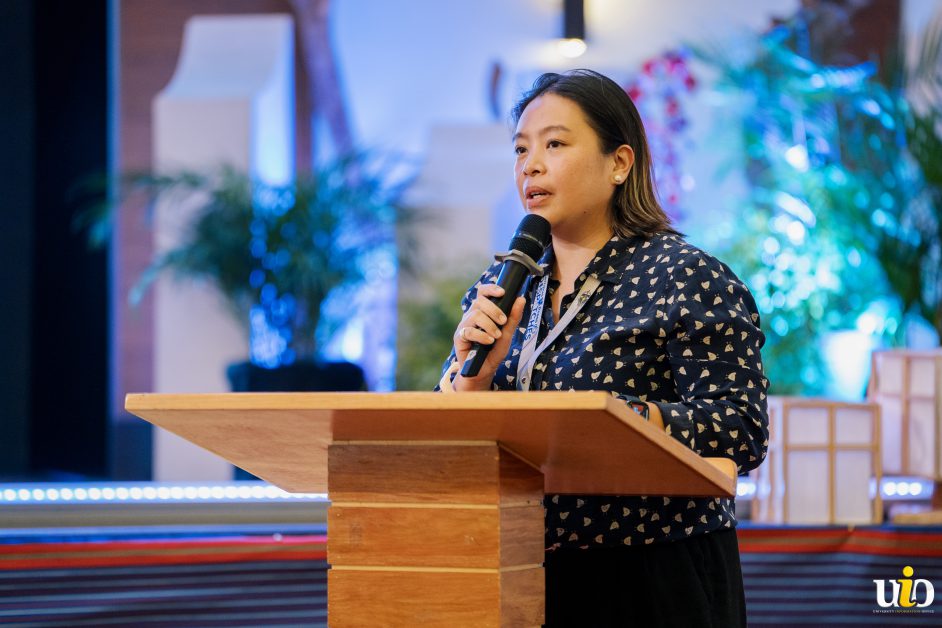
Shedding light on the provided prompt, the student publications were tasked to choose a local story that their respective school publications care deeply about, specifically one that resonates with the Louisian community or the local culture. Furthermore, a short 250-word article, a graphic, and at least two photos (2) were to be included in the presentation of their chosen local stories.
Following the one-hour brainstorming and production session, the school publication representatives shared their selected local stories, presenting detailed and compelling narratives with different writing styles, news angles, and creative correlating graphics and photos on their corresponding advocacies.
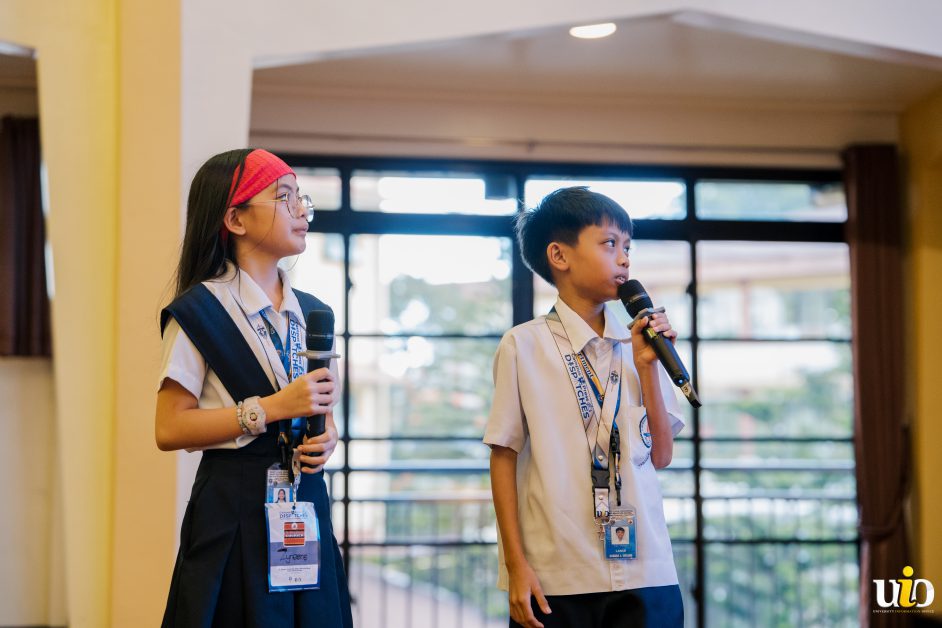
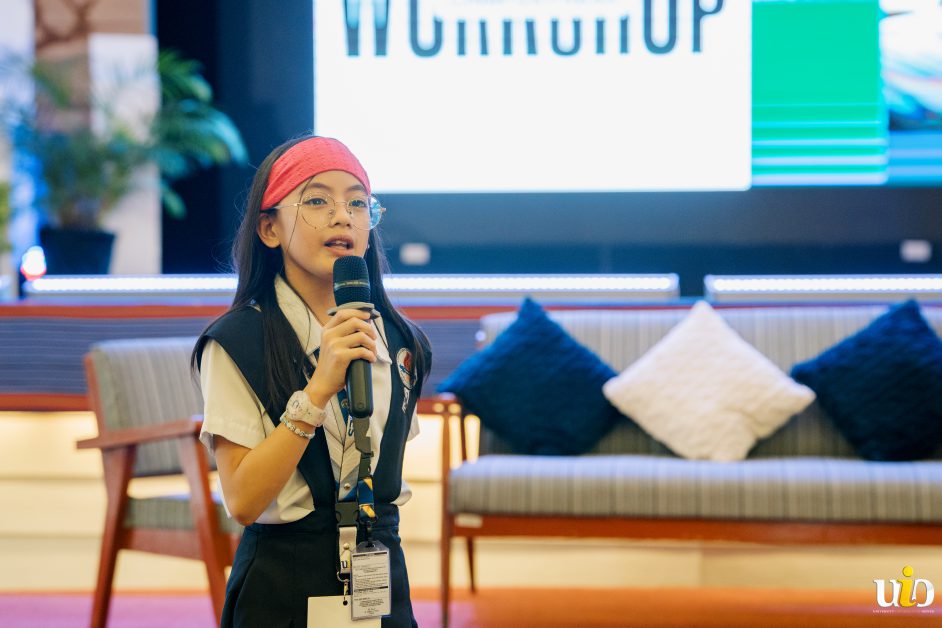
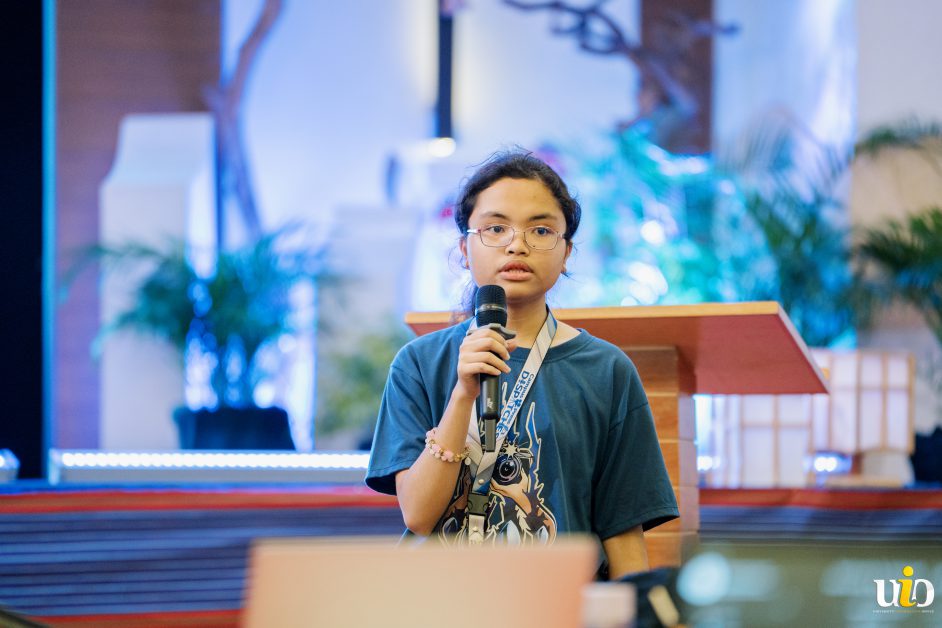
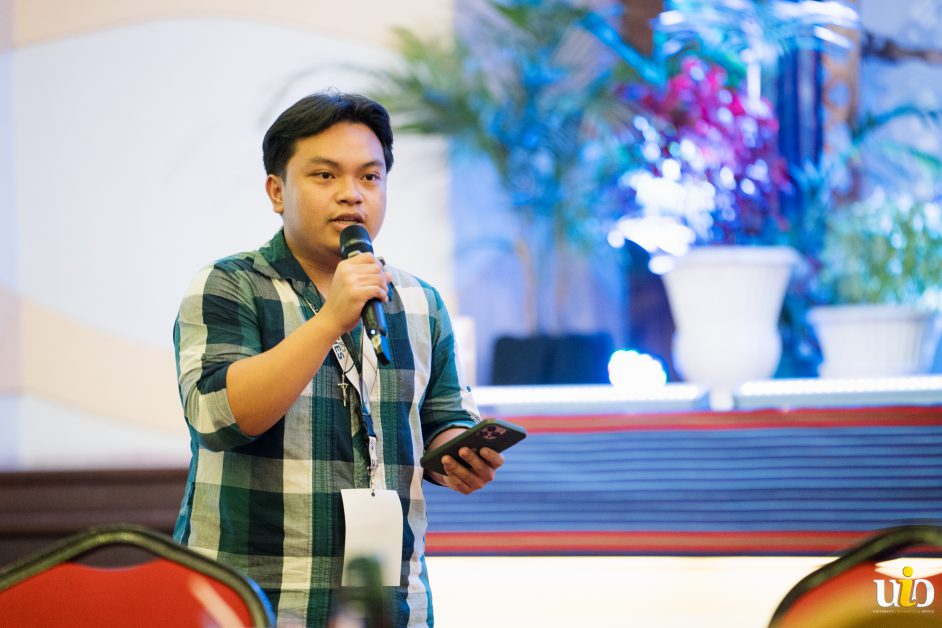
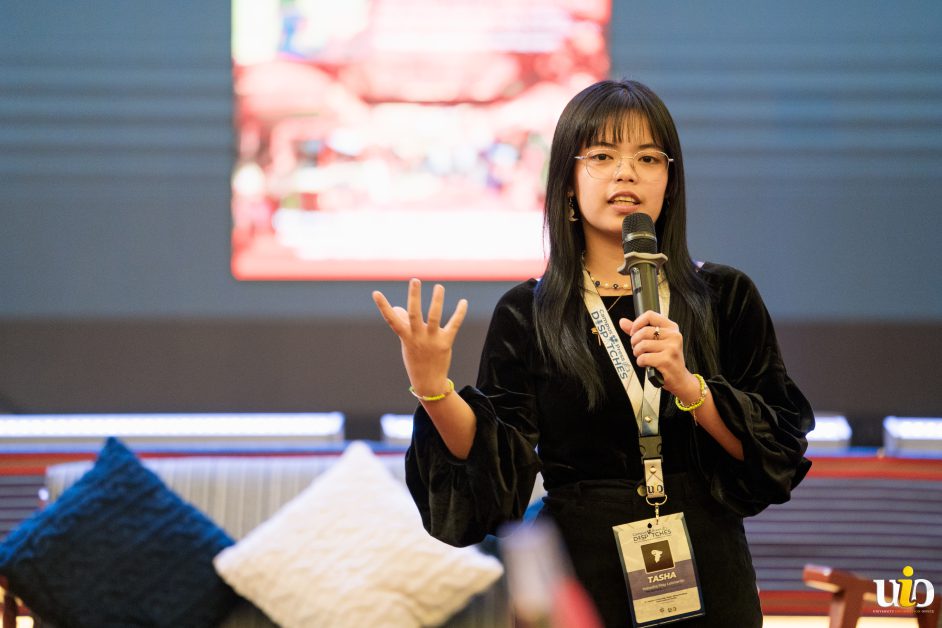
Thereafter, a UIO Hour was administered by the UIO team– University Information Officer Atty. Macob; Writer Mrs. Sitchon; Public Relations, Media and Communications Assistant Ms. Lianne Pauline Carreon; and Multimedia Staff Sir Carl Kayne Valeriano– providing a thorough review and constructive feedback on the presented works by each publication.
To formally conclude the conference, Mrs. Sitchon delivered the closing remarks, expressing her heartfelt gratitude for the participation of the Louisian journalists. She looks forward to even more collaborative endeavors between SLU-UIO and the school publications, and that the office will do its best to address the needs of each.
“Thank you so much for sharing your stories, and I do hope that all the more you’re encouraged to keep writing about what matters to the community that you belong to, the publications that you’re part of, and the students that you’re writing with and about,” she concluded with a final bout of thanks.
SLU stands by its motto, “Sapienta Aedificat” (Wisdom Builds) – an affirmation towards quality education, motivating the development of programs that magnify the diverse perspectives of young students and build trust and partnership within the Louisian community and beyond, fostering meaningful conversations about the CICM Advocacies: Justice, Peace, and Integrity of Creation and Indigenous Peoples Apostolate (JPIC-IPA)
The campus publications dispatch serves as a testament to the University’s continuous pursuit of knowledge and excellence, aligned with the United Nations Sustainable Development Goals (UN SDGs), specifically SDGs 4 (Quality Education) and 17 (Partnership for the Goals). Additionally, the event encourages Engaged Citizenship and Youth Empowerment in the youth in alignment with the Catholic Educational Association of the Philippines’ framework (CEAP – JEEPGY). (Article by Agnes Dela Peña, UIO Intern | Photos by Arnmari Dela Cruz, UIO Intern)
